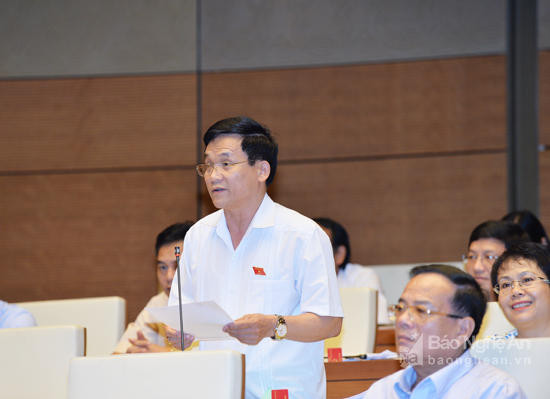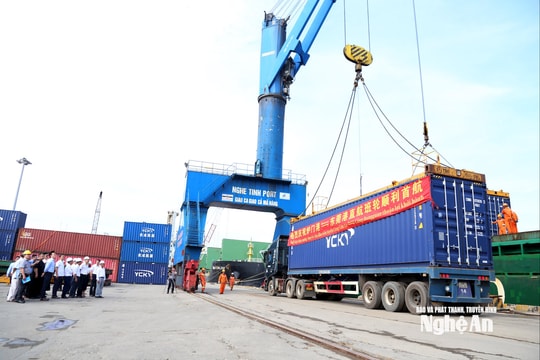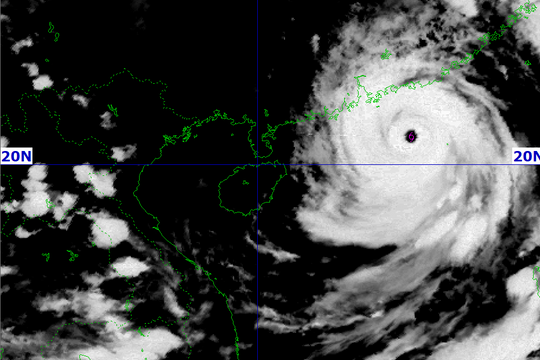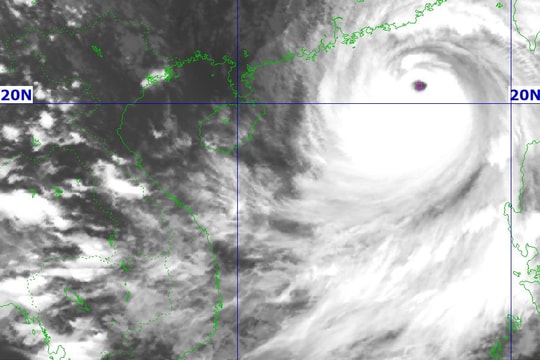Deputy Head of the National Assembly Delegation of Nghe An: Do not let the enterprise value decrease before divesting capital
(Baonghean.vn) - National Assembly Delegate Tran Van Mao (Nghe An) said that it is necessary to pay more attention to the process of equitization and divestment of State capital, not letting the value of enterprises decrease before divestment.
Nghe An Newspaper had a quick interview with Deputy Head of the National Assembly Delegation of Nghe An Province Tran Van Mao on the sidelines of the 8th working day, 4th session, 14th National Assembly.
 |
| Mr. Tran Van Mao - Deputy Head of the National Assembly Delegation of Nghe An province. Photo: Document |
PV:What are your comments on the Government's report and the National Assembly's Economic Committee's review report assessing the implementation results of the National Assembly's Resolution on the 2017 socio-economic development plan and the projected 2018 socio-economic development plan?
Mr. Tran Van Mao:I basically agree with the contents. In 2017, despite the fluctuating international and domestic situation, the Government has directed, closely monitored, flexibly and proactively operated, closely coordinated monetary policy with fiscal policy and other policies to control inflation, stabilize the macro-economy, and promote growth.
The growth rate of gross domestic product met the target approved by the National Assembly Resolution; 13/13 socio-economic targets met and exceeded the plan.
However, the socio-economic situation also revealed a number of limitations and weaknesses as clearly pointed out in the Government's report and the inspection report of the National Assembly's Economic Committee.
I also agree with the assessment in the inspection report of the National Assembly's Economic Committee and the Government's report that public debt is still high, bad debt handling is still difficult, equitization of state-owned enterprises is still slow, and state capital divestment is low.
Through inspection, examination and audit, many more investment projects of state-owned enterprises have been discovered to be behind schedule, inefficient, losing money, and losing tens of thousands of billions of dong. If we continue to expand inspection and audit to include projects of state-owned enterprises that are behind schedule, inefficient, losing money, and losing capital and state budget, the loss figure will certainly not stop at tens of thousands of billions as mentioned above.
PV:So what do you think is the cause of this weakness?
Mr. Tran Van Mao:There are many objective and subjective reasons, among which the equitization of state-owned enterprises and divestment of state capital pose the problem of determining criteria for strategic selection and enterprise valuation, land use rights value with values according to quantitative economic, cultural and historical factors.
The application of mechanisms, policies, methods and approaches to equitizing state-owned enterprises is not unified, implementation is still arbitrary, emotional, not following market rules, publicity, transparency, clarity and equality, causing public outrage and low efficiency.
Divestment rate is low, only 12,099 billion VND collected, reaching 20.1% of the plan, slow divestment in large enterprises (Vinamilk, Habeco, Sabeco...)
The transfer of enterprises after equitization to ICIC is still slow, registration for transactions on the stock exchange has not been seriously implemented, and many enterprises have not registered for transactions.
The performance of state-owned enterprises is not commensurate with the resources they possess, and labor productivity and production and business efficiency are low. Some state-owned corporations operate poorly, are making losses, and their governance systems do not meet international standards.
The equitization and divestment process still faces many difficulties and problems, especially regulations on asset prices, land, sale methods... and the responsibilities of state-owned enterprise managers are unclear.
PV:Do you have any recommendations or proposals to speed up the equitization of state-owned enterprises?
Mr. Tran Van Mao:I propose that the Government promptly and fully promulgate, on schedule, the policies and mechanisms and projects to arrange, innovate and restructure State-owned enterprises according to the set plan.
We need to complete the equitization of enterprises on schedule by many appropriate forms, including the approved public and transparent auctions from now until 2010.
Relevant ministries and branches need to closely coordinate with economic groups and State-owned corporations in directing, inspecting, urging, guiding, removing difficulties, and handling problems in the implementation process, especially the equitization and divestment of State capital from large-scale enterprises, and not allowing the situation of waiting for the enterprise value to decrease before proceeding with divestment.
This is special in the current period, when the Party and State are in the period of focusing on promoting restructuring, innovation, divestment of State capital, no need to hold, participating in capital contribution in the spirit of Resolution 5 of the 12th Central Committee of the Politburo to contribute to promoting economic development and realizing social progress and equity.
PV:Besides the above issue, what other areas are you concerned about that still have limitations and weaknesses?
Mr. Tran Van Mao:The second weak issue that I am concerned about is the restructuring of the agricultural sector, although it has achieved initial results. However, the formation of production models and management models in agriculture associated with production chains, distribution value chains, etc. has not yet changed. The situation of smuggling, production fraud, trading in fake and poor quality fertilizers, price increases, price posting, unreasonable cost structures in the cost of fertilizers, pesticides, plant and animal varieties serving agricultural production in rural areas and farmers is widespread and beyond control.
These are the contents that have been reflected and recommended by voters over many terms but have not been controlled yet. The State has not had effective solutions to control the prices of materials, fertilizers, seeds, and animals serving farmers.
I just give an example through a survey of the actual price of nitrogen fertilizer of a branded nitrogen fertilizer corporation today shows that: according to the settlement data, the average selling price of nitrogen fertilizer is 6,123 VND/kg, transportation costs are monitored separately, goods are delivered to each consumption area, but in reality farmers cannot buy goods at such prices. The average price in the Nghe An market in 2016 fluctuated at many times around 7,500 VND/kg to 8,500 VND/kg, there were times when farmers had to buy at 9,000 VND/kg.
The difference that farmers have to bear compared to the average selling price of nitrogen fertilizer is 2,277 VND/kg. Thus, farmers who are already disadvantaged become even more disadvantaged.
This is a paradox that has not yet had a fundamental solution to control and intervene to help farmers escape the burden of having to bear the high prices of materials, fertilizers, seeds, and animals, while a group of businesses benefit from the sweat and tears of farmers.
I propose that the Government pay attention to having drastic and fundamental solutions in controlling, managing, and regulating harmoniously to ensure the interests of farmers and businesses.
PV:Thank you.
PV - CTV
(Perform)
| RELATED NEWS |
|---|

.jpg)
.jpg)

.jpeg)



